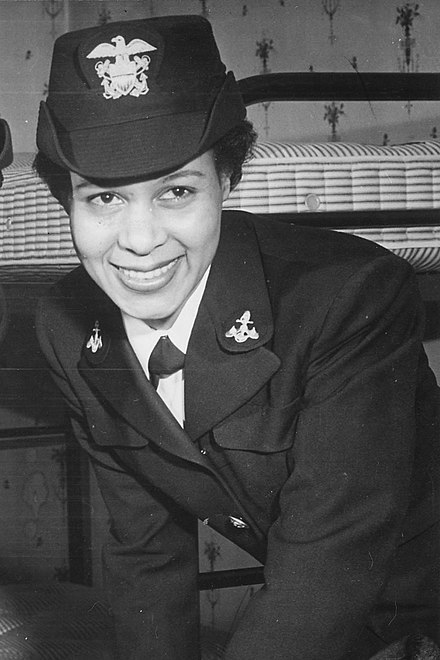#united states military
Text
1K notes
·
View notes
Text

Frances Eliza Wills (married name: Frances Thorpe; 12 July 1910 – 18 January 1998) was an American naval officer and one of the first two African American female officers commissioned by the United States Navy. After her years with the WAVES, she worked as secretary to Langston Hughes.
#black history#black tumblr#black literature#black excellence#black community#civil rights#black history is american history#black girl magic#blackexcellence365#military#united states military#united states navy#black pride#black history month#black archives#black culture
391 notes
·
View notes
Text
@tylervalenzia
51 notes
·
View notes
Text
#revolutionary#black liberation#farrakhan#louis farrakhan#nation of islam#black love#black man#united states military
54 notes
·
View notes
Text

TEAM SPIRIT, by @Rifleman1130
#artists on twitter#exercise team spirit#south korea#united states military#military art#uniform art#cold war#history#girls in uniform
14 notes
·
View notes
Text
Disclaimer: I am not the original owner or creator of this content. The source account is listed below.
#tiktok#palestine#free palestine#free gaza#gaza#united states congress#us military#united states military#us military aid#israel#israeli defence forces#IOF
10 notes
·
View notes
Text
Kokomo’s M4 Sherman: Before & After




Local Name: The Jackrabbit
Refurbished for $20,000 by local legion
Memorial for WW2 vets
42 notes
·
View notes
Text

#Israel#Palestine#United States#United States military#US military#Destiel meme#there's also talk of sending a large amphibeous support vehicle#China has taken Palestine's side#this is how WWI started#shit's getting hot in the water in an extremely uncomfortable way
15 notes
·
View notes
Text
i love how the military can just come give presentations in schools
6 notes
·
View notes
Text
“If You Build It, They Will Come”: Military Recruitment in a Better Future
This essay was originally posted on November 29th, 2022.
The brain seed for this one came from mulling the hypothetical future I like to throw around. With the caveat of that I would NOT recommend ANYONE join the military right now, at some point in the future where maybe hopefully we have a better government we will still need a military. With that being the case, how do you attract and retain talent? Shocker: a big part of this is just treating people like human beings with dignity.
(Full essay below the cut).
If there’s one thing I’m constantly hearing people in my field go on about – whether they directly work for the national security establishment or on its peripheries – it’s some variation on “manpower.” More specifically within the overall issue of manpower, they’re talking about the issue of recruitment and retention in the U.S. Armed Forces today.
It’s no secret that the military is going through what could increasingly be called a “crisis” when it comes to recruitment and retention of personnel. At the end of FY 2022, the U.S. Army had missed its active duty recruiting goal by about 25% – or 15,000 soldiers. The U.S. Air Force only just barely met its own stated recruitment goal for the year – with its recruitment leadership openly admitting that they’re going into the next year in a much weaker position recruitment wise. Meanwhile, the U.S. Marines had to reduce its recruitment goal for the past year. Overall, the military has been struggling in various ways to keep numbers up.
Now, it should be said right away that I subscribe to the What a Hell of a Way to Die position on joining the military right now: which is that you should not do it (understanding, of course, that for some folks in bad situations it may be their only option). So, at first glance when I see these low recruitment numbers, I generally go: “good.” However, it should be noted that I subscribe to the “don’t join the military” viewpoint with an asterisk at the end that leads you to an addendum: that I believe that is the case now but that will not always be the case someday.
One of the reasons I started writing these essays is because I believe even if we fundamentally change the political and social system in this country for the better, we will still require a military for a whole host of reasons. This means that, at some point in the future when things don’t suck at much, I’m going to shift my position from “you should not join the military” to “maybe some of you should consider joining the military.” I have no idea when that will be (almost certainly not in the immediate future), but if things go the way I hope they will in the long-term big picture, this will become a reality at some point.
With all that mind, that begs the question: assuming someday that President Leftist is elected and the Democratic Socialists of America gain a super-majority in Congress and begin a top to bottom change of how we do things in this country and in the world at large, how do you attract people to join the military? How do you do that when you’re not relying upon the poverty draft, or upon Rally ‘Round the Flag effects of patriotism? How do you not only convince people to join the military for an entirely different set of reasons than they are now, but also keep them there? What issues will need to be addressed – not simply in the military itself, but in this country as a whole?
I’m glad you totally asked all those questions just now because I’ve been thinking about them myself and now that I have you trapped in my mind palace let’s talk about them.
It’s the Culture, Stupid
A number of explanations have been mooted for why the military is struggling to recruit: the pandemic not only had direct medical effects, but also affected in-person and in-school recruiting (which in itself is a really dystopian concept to comprehend); civilian companies are making better offers in terms of benefits and other perks than the military can make; only a small number of American youths meet the various requirements set by the military to join (be they physical, educational, or “moral”); meanwhile, the patriotism that two decades of the Global War on Terrorism afforded the military has long since faded. Interestingly, military brass and civilian leaders also blame what a Bloomberg Government article calls “uninformed messaging” on the risks military service to both body and mind (I’d really like to know what exactly they mean by “uninformed” after seeing the consequences of twenty years of constant counter-insurgency on a generation of veterans but go off I guess, Bloomberg). The end result of the aforementioned issues and more is that for the first time ever, more than half of all youths (52%) don’t even consider joining the military as an option for their future.
Now, all of the previously mentioned factors certainly have affected recruitment and retention in the military. But there’s also the ones that nobody in DoD leadership really, absolutely, do not want to talk about at all (though they do want to talk about “uninformed messaging” about risks apparently – again, whatever the fuck that means). That issue is one of culture.
It shouldn’t be shocking to anyone with two working brain-cells that the military has had issues with toxic culture for- well, forever. Some of those issues have been steadily terrible for as long as we’ve had a military, while others have only worsened recently alongside the overall political environment in this country. An example of the latter was seen recently when the Army reprimanded a retiring general for criticizing infamous Fox News host and fascist Tucker Carlson roughly a year ago. The right-wing broadcaster had been making misogynistic comments about women serving in the military at the time when the officer – Major General Patrick Donahoe – had fired back at Carlson on Twitter for his comments about women in the military. The Army’s reprimand of the general caused a backlash that was not aided by Secretary of the Army Christine Wormuth’s comments at the annual Association of the U.S. Army convention that the Army should stay “out of culture wars.” Her comments created such an outrage that the Secretary had to backtrack by the end of the week and state that Army leaders should stand up for all soldiers who are being unfairly attacked (still adding in the both-sides caveat that said leaders should “use good judgement” and “keep it professional”).
The Carlson-Donahoe saga demonstrates how unwilling the military is overall to stand by one of its troops even if they’re doing what is objectively the right thing to the majority of people – and even if they are a two-star general – because the brass terrified of rocking the boat. When the going gets tough, the military is more the leadership are more than willing to throw one of their own under the bus – even if that person in general is comparatively high ranking. Combine that with the fact that the military is doing this over comments on an issue that is essentially settled for most sane people (the issue of women serving in uniform), only makes it worse. It is entirely understandable people would not want to enlist in the Army when it can’t even make a straightforward statement opposing misogyny without first having caused a week of outrage (and make said statement with a whole series of caveats after the fact). What else won’t the Army back them up on the future? What else might they throw you under the bus for? The Green Weenie is finding new and exciting frontiers in fucking over the troops, apparently. This shouldn’t be that surprising though, I suppose, when the Army can’t even provide livable housing that isn’t infested with black mold for its enlisted ranks. How can an Army that can’t even do that be expected to stick up for its troops against someone like Tucker Carlson?
The issues of toxic culture aren’t limited to the wider American culture war, however. The military also has its own service-specific issues of workplace culture that have been festering for years. It’s not just about right-wingers being right-wingers. A perfect example of this can be seen in the U.S. Navy, where – despite reaching its recruiting targets for this past year – has seen desertions climb dramatically over the past two years. Sailors describe being in “unbreakable” service contracts requiring up to six years of active duty, while potentially being housed in unlivable conditions. An infamous recent example was on board the USS George Washington – a Nimitz-class aircraft carrier – where not only were sailors forced to live on a ship where construction noise made sleep virtually impossible and there was often no hot water or electricity but were also berated for issues out of their own control.
The issues about the George Washington all fold into a Navy-wide problem in the post-Cold War era of increasing the stress placed on both sailors and ships in order to meet increasingly demanding requests for naval deployments and presence around the world. It was a culture like this that led to not one, but two collisions of Navy guided-missile destroyers with other ships in 2017 (both resulting in the entirely preventable deaths of sailors onboard). More and more pressure has been placed on a smaller navy with fewer sailors to maintain an extensive imperial presence overseas, all while pushing for a mentality of “zero defects” or errors. This culture issue is especially bad in the Navy’s surface warfare community (i.e. the ships that are specifically designed to shoot at things and fight wars at sea), which is notorious for “eating its young” and responds to even the smallest of mistakes with chastisement and punishment – with little to no effort to turn any of said mistakes into teachable moments or lessons.
Workplace issues aside, I haven’t even gotten specifically in the issues of sexual harassment and sexual assault (ask the Army about how things have been going at Fort Hood). I wanted to make special note of that so you didn’t think I was casually ignoring it because it too is a huge problem and a huge reason for why people may not be eager to enlist but quite frankly given how up and down my mood has been already with various bullshit this year I just do not have the strength to go into granular detail on that issue right now. If I did, I might just end up curled up in the corner in the fetal position so let’s just say for now that it is in fact a huge bad issue and leave it at that to delve into another day when I have the mental fortitude for it.
From workplace culture issues like we see in the Navy, and the overall issues of failing to push back on toxic culture in American society we see in the Army, when you add in that many young people may take issue with the ends to which the military has been used for – especially for those who grew up in the shadow of the Afghan and Iraq Wars – , it should be no wonder why man young Americans have no interest in joining the military. All of these issues, of course, are ones that the military is desperate to not have to talk about because it involves admitting faults and problems and rocking the boat in a way that awakens loud and shrill constituencies of right-wing TV hosts and retired flag officers with nothing better to do than keep things the way they knew them. Change would also mean having to devote more money to actually looking after troops rather than having it flow directly into the pockets of the board of directors at Raytheon or General Dynamics or Absolutely Not Evil Defense Contractors Inc.
A Reason to Fight
Ok, so we’ve established that the military has issues with all kinds of toxic culture in its ranks – in addition to however many other issues that are preventing it from recruiting the numbers it needs. So, with our future hypothetical of a country and society that suck less, how do you go about fixing things so that more people – including ones that otherwise might say “not only no, but fuck no” to joining – might be convinced to enlist in a military in service to said country?
I’ve said on Twitter before that the military is not an entity unto itself that exists only in a bubble; it is a reflection of society and its health (or sickness). You cannot truly reform the military without also reforming society (to different extents, depending on the issue). To that end, only attempting to solve cultural issues within the military will not solve the issue of recruitment and retention on their own (it may have some positive impacts but would only be a band aid on a wider issue). Yes, there may be some issues you might be able to solve in-house only, but that won’t solve all the culture issues that face the military and as long as wider culture issues persist in America. If you only focus on the issues specific to the military, you’ll be fighting a losing battle against bad culture in general. Cultural issues need to be addressed in tandem throughout both the military and throughout the country as a whole.
The broadest answer possible to these problems is to – for lack of a better term – make both the military and country suck less so that people actually feel more like serving. This is why I label my approach to recruiting and staffing a reformed U.S. military for a fundamentally changed United States as the “if you built it, they will come” approach. The core of this approach is that if you build a society (rather, an allied community of such societies around the globe) that people actually care about and think actually does good – not only for them, but for others both at home and abroad – that more will actually want to volunteer to join the military to protect said society and its liked-minded peoples around the world. They will feel a sense of international solidarity with all peoples and maybe feel a desire to join a force that actually, genuinely fights in order to make people’s lives better or to protect them from harm by aggressors. I feel like this isn’t that complicated a concept, but that if I tried to explain it to most of the people that I encounter in my field I’d probably get some kind of open mouth fish expression from them in response.
Having that change in culture – both in terms of how the military treats its people and what it’s asking its people to go and fight for – is crucial when you realize that the recruiting environment would be even more competitive in the hypothetical democratic socialist future that we are considering. Social welfare programs like Medicare for all, strengthened social security, and etc. would mean people wouldn’t have to join the military just to get healthcare or retirement funds. Free college education would mean you wouldn’t have to join the military to have any hope at a higher education through the G.I. Bill (something that some Republicans have gone completely mask-off over). Improved worker rights through unions and other avenues of organizing would mean that working conditions in other fields would also improve and attract employees that otherwise might shy away or quit. If the military thinks it’s hard to recruit now, just wait until we elect President Leftist – they’re gonna have a bad time.
Rather, the military is going to have a bad time recruiting if they continue to stick to how things are done now. In a far more competitive environment for recruiting the best and brightest, the military is going to have to strive to not only treat troops well (like other employers will ideally be doing by that point), but also offer them something that other career paths don’t in terms of the intangibles of things like “self-fulfillment.” The “treat troops well” part should be simple (put them in housing that isn’t riddled with black mold, protect them against abuse and harm like sexual assault and murder, generally treat them like human beings with inherent rights, etc.), and goes hand in hand with changes we need to make on a macro level in this country when it comes to how we treat our workers. Thankfully, labor activism is an area we’re seeing somewhat of a renaissance in, and we should all aggressively support and show solidarity with. Hell, some of the troops have been resurrecting an old idea and trying to unionize, which I’m all in favor of (and would be a natural part of what I’m suggesting).
But when it comes to offering something that other fields wouldn’t, that’s a little more involved compared to simply treating the troops better – but something that is still tied to national level societal changes we need to make. Under the current circumstances, if people aren’t waved off by the various other issues I’ve already described when it comes to enlisting, they’re joining the military for material gain of some kind or for patriotism. We’ve already discussed how the patriotic drive for enlistment has diminished in the years following 9/11. This is actually reflected in recent military recruitment ads I’ve seen, where it feels like in some cases the issue of patriotism is completely side-stepped or mostly a foot note. The focus appears to be far more on careerism and vague notions of professional development or even on thrill-seeking and excitement in many cases than on any sense of national pride or service to the nation (let alone its people). In a weird way, while the military doesn’t seem eager to draw the ire of far-right chuds like Tucker Carlson, at the same time it’s trying to cleanse its recruitment image of some of the old school flag-fucking that we once accustomed to throughout the War on Terror years. The result comes off as sanitized and unappealing to just about everyone.
Ideally, in the society we’re envisioning, patriotic and nationalistic impulses will have further diminished to be replaced by something less jingoistic and imperialistic. We should be building a society where people are thinking less about our country alone and how great it is, and more about making the world a better place for as many people as possible, ensuring that they have their basic needs met, have their human rights respected, and are protected from harm by those who would deprive them of those essentials and more. Creating a world where people don’t live in fear of want and can be free to live and exist as their best selves. We need to instill a sense that if you join the military and being sent overseas, you’re not going to a warzone in order to prove your country’s “greatness” or to line the pockets of a corporation or oligarch or out of xenophobia or racism. You’re going there, because there are people there who are under attack and need help and have asked for help against an aggressor. You’re doing it because it’s the right thing to do, and that requires people who are strong in both body and mind and willing to take risks in order to help those who are in need of help. That should be the draw for potential recruits in a society like the one we want to achieve. It should be about helping people both at home and abroad be able to live better lives. Anything else should just be the garnish to that central idea of what service should be about in this hypothetical future. The patriotism and nationalism that was once a draw to enlist, should be replaced by a sense of internationalism and solidarity among the free peoples of the world.
The Part Where I Admit I’m Mainlining Hopium
Out of every essay I’ve written so far, this is probably one of my most blatantly idealistic pieces. I usually tend to adopt fairly realistic viewpoints on change compared to others on the Left, but this is one of those few areas where I really stick my head in the hopium clouds, inhale deeply, and go for broke. I am well aware that what I’m saying is a tall order – not an impossible one by any means, but a difficult one. The type of change I’m asking for isn’t the kind that can be accomplished in five, ten, or even 15 years. It is, by nature, a generational project. It requires foundations to be laid and built upon for decades in order to come fully to fruition. However, if you’re a socialist and not in for the long haul than I really don’t know what to tell you after – you know – all the history of being socialist that’s ever happened ever.
I guess the inherent beauty is that if we do everything we want to as leftists and change this country from top to bottom, due to the nature of the military being a reflection of the society its serves, we’d already be well on our way to changing it. It would then just be a matter of rooting out any lingering remnants of reaction within. Therin lies a point that’s been buried amid everything else I’ve discussed: that in the society we want, the military will have to let go of its purported apolitical nature (one that can often be one-sided, as the Tucker Carlson episode has demonstrated to us). A military that is opposed to authoritarianism, fascism, reaction, and more – that is dedicated to all the principles we’ve laid out, will be inherently political. It needs to be political if it is to be successful. A military can not be divorced from the society it serves, and the society we aim to create is one of politically minded and involved people striving for a better world. Being apolitical or “neutral” will no longer be an option.
I understand that some people on the Left are going to be credulous of or openly hostile to everything I’ve written here, and I can understand that. I know some of you I’ll never be able to convince and I make my peace with that, but for those are open to being convinced, let me tell you I understand it may be difficult for many of you to feel idealistic about something like the military. No matter how you slice it, or you change it, joining the military fundamentally involves taking on risks to life and limb. You’re signing up for the possibility that you will be sent to war, where you could be grievously injured or die a horrible death. Even if you are never sent to war, you still take risks from training exercises, peacetime deployments, and any other time you’re around weaponry and heavy machinery and more. Moreover, you sign up with the intent that you may be called upon someday to take a life – multiple lives even. You take on the risk that even when everything goes right, there’s possibility innocents will die entirely by accident. Taking a life, even in self-defense, is no small thing to ask of a person and should not be taken lightly (especially with the amounts of destruction that modern warfare can muster).
Unfortunately, all of what I just described will still be necessary even in a future where we’ve affected real change at home. My whole basis for arguing for these changes and others is that we will still need a military, because there will always be a threat to those trying to live as free people from the forces of reaction and authoritarianism and fascism and more. We may not seek out conflict, but sometimes conflict is forced upon you – or upon others who are unable to defend themselves on their own and require assistance. That means we will still need a military and we will need people willing to step up and put their minds and body on the line to defend others as part of said military. It is no small order and what I’ve offered in this essay is only the beginning of trying to figure out how to square that circle of how promote a culture of service in a society that isn’t inherently capitalistic, imperialistic, and exploitative.
All I can offer to those who are skeptical and dismissive of everything I have said, is that if thousands of people have traveled across the world to defend Ukraine – a country that is not their own – from an aggressive imperialistic invader, if thousands traveled across the world to try and prevent Spain from falling to fascism in the 1930s, surely we can convince Americans of the future to step up to do the same thing on a grander scale. I believe we can change this country and the world for the better, and if we do that, we’re already well on our way to solving the problems I have described in this essay.
I will end my hopium induced frenzy here for today. In the meantime, I would remind you that while someday I may encourage some of you to join the military, for the time being I would like to remind you that you absolutely not join the military if you have a choice. That time may one day come, but for now I’d suggest you give that a miss. On that note, that’s all I have for now. As always, stay safe out there.
#essay#War Takes#War Takes Essay#leftism#leftist#socialism#democratic socialism#international relations#IR#national security#national defense#international security#foreign policy#foreign affairs#war#military recruitment#united states military#united states armed forces#military culture
9 notes
·
View notes
Text
#talkin#tik tok#food#recipes#military industrial complex#us military#military#united states military#military propaganda
272 notes
·
View notes
Text

#black tumblr#black history#black literature#black excellence#black community#civil rights#black history is american history#blackexcellence365#united states military#lieutenant#buffalo soldier#fort sill#oklahoma history#american history
207 notes
·
View notes
Text





I post this guy every few months. I don't know his name, if you do, please let me know, I'll be sure to add it. Anyway, he took a bunch of pics, here he is again!
27 notes
·
View notes
Text
#united states imperialism#united states military#united states war machine#gaza genocide#fuck genocide joe#free gaza#free palestine#gaza strip#palestine#gaza#iraq#articles#us out of swana regions
2 notes
·
View notes
Text

A U.S. Army infantryman during Exercise Southern Vanguard 23 in Tolemaida Military Base, Colombia.
The U.S. Army photo by Sgt. 1st Class R.J. Lannom Jr. (2022).
6 notes
·
View notes
Text
Disclaimer: I am not the original owner or creator of this content. The source is listed below.
#tiktok#free palestine#palestine#free gaza#gaza#israel is committing genocide#israel is an apartheid state#israel#united states#the united states of america#united states military#israeli defence forces#israeli offense forces
5 notes
·
View notes